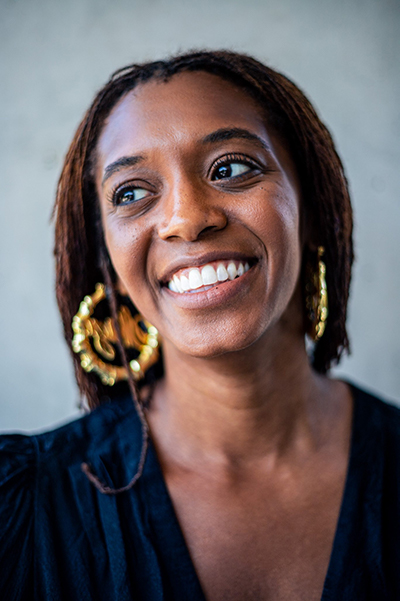
This Is Major: Notes on Diana Ross, Dark Girls, and Being Dope
By Shayla Lawson, Assistant Professor of English
HarperCollins
Dear reader, this review will not attempt to define Shayla Lawson’s This Is Major, because I am not sure I fully grasp the essays in this collection. What I know is that this book is so much greater than the sum of its parts. Listen—Lawson is saying something major in here, and we need to hear it.
This is a book about Black womanhood.
The essay “For Colored Girls” is Lawson’s meditation on the fragility of Black girls and how they are often excluded and exclude themselves from care while suffering depression and contemplating suicide.
Another essay considers “black girl magic,” a concept Black girls use to protect themselves, but which is also used to cast them as strong and without need of protection.
It is magic to watch Lawson reinvent the “Tar Baby” narrative in “Let Her Be Laughter,” shrugging off the expectation that Black women be quiet and composed to be likeable. She brings Black girls, likeable or not, to the center of the story: “Let there be an end to silence as goodness. Let there be loud dark girls. Let those girls hold giddiness in their bellies until it becomes a thunder roar.”
In “Intraracial Dating,” Lawson turns inwards to illustrate just how burdensome and contorted dating is for Black women. “I couldn’t be free with a black girl, you know ... like, be a kid and just explore,” one Black man tells her.
Let’s talk about Black women’s sexuality, responds Lawson, in “Love Songs for Thots,” as we watch young Black women try to define themselves sexually, failing as often as they succeed.
This is a book about living while Black.
If you know about the death of George Floyd, then you know that to be Black is to be under attack. Lawson’s essay about being Black at work, “Tammy from HR,” is both tragic and humorous. “Black Girl Hipster” reminds us that the original hipsters were young Black men in the 1950s—now forgotten history.
And in “‘Black Lives Matter’ Yard Signs Matter... to Your White Neighbors,” Lawson challenges the notion of a post-racial America: “We’ve migrated into a time in which it is more important for people to feel not-racist than it is for them to act not-racist.”
This is a book about Black erasure.
“American Girls” reflects on Lawson’s childhood yearning for an American Girl doll (but not the dark-skinned Addy Walker) and how she bought stock “in the idea that what made America ‘America®’ was all things white.”
This is a book about shame and confusion and self-hatred and injustice but also about discovery and redefinition.”
“No, My First Name Ain’t Whoopi” shows us just how often Black women’s bodies are treated as property, how Black bodies are refused the right to be individual. She discusses being misidentified as celebrities she looks nothing like and who look nothing like each other. But the most terrifying bit of this essay is the revelation that AI algorithms show bias against dark skin tones and misgender Black women.
This is a book about embracing Blackness.
“Diana Ross Is Major” considers the singer-actress’s contributions to the liberation of Black women even as she struggled with accusations of inauthenticity. Through Ross, Lawson explores the guilt successful Black women feel “about what they have earned because they have gotten things we are told black women should not have.”
And through Nina Simone, Lawson talks about all the spaces where Black women are absent and should belong. She talks to us about anger and self-preservation as survival.
This is a book about shame and confusion and self-hatred and injustice but also about discovery and redefinition. It’s a book about being unseen yet seen in all the wrong ways, about failing to see oneself and then seeing that one is Major.
And what I most enjoyed while reading each essay was not knowing where it might lead me: there were switchbacks, counterarguments and walls that rose suddenly to provide necessary collisions with truth. And how glorious were the conclusions that were also questions seeking more answers.
Onjerika won the 2018 Caine Prize for African Writing and was shortlisted for the 2020 Bristol Prize.